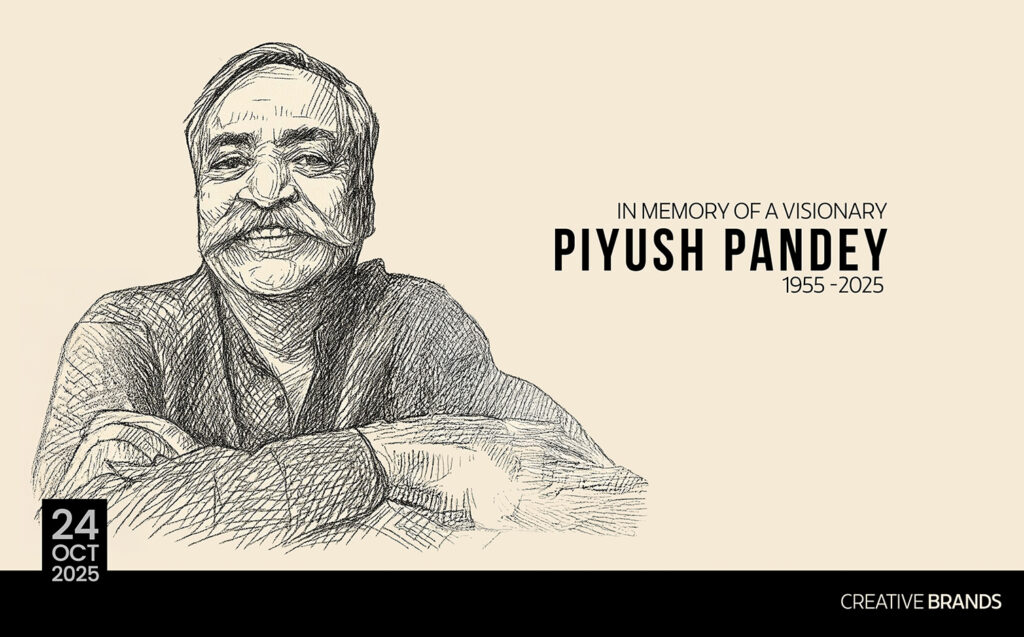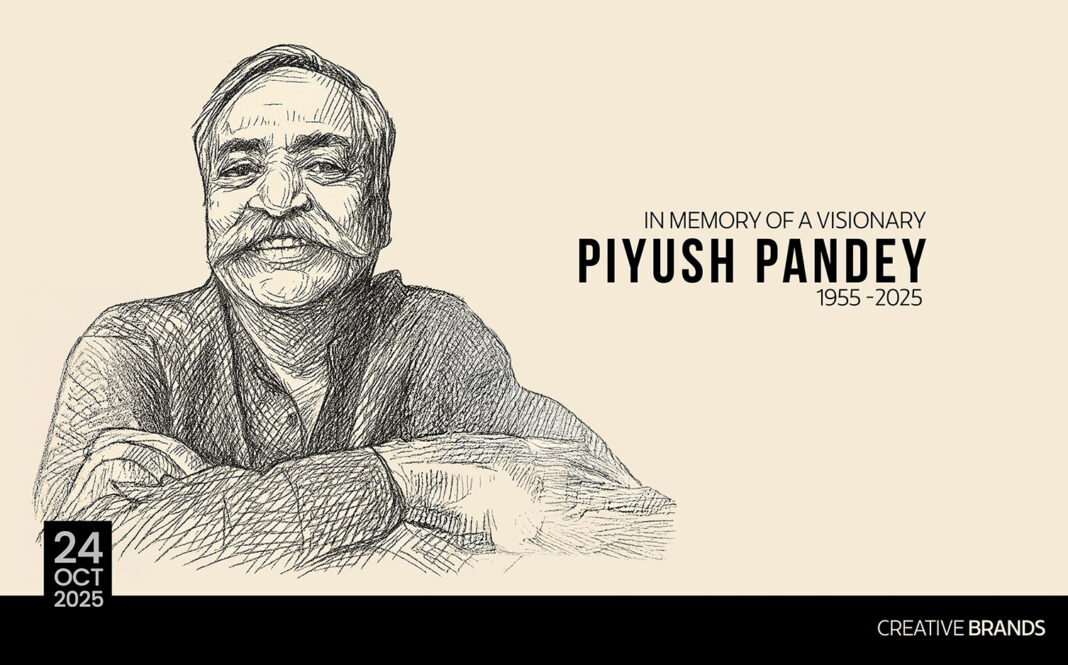Indian advertising has lost its voice — not the shrill, data-led, hyper-optimised voice of the present, but the one that laughed along with India, wept with India, and addressed its people in their own vocabulary. Piyush Pandey — the moustachioed icon who changed the way this country thought about brands, narrative and itself — died this morning at 70. Gone with him is not only a leader, but an age.

For over four decades, Pandey was not just making ads — he was documenting India. A Padma Shri laureate and erstwhile Global Chief Creative Officer of Ogilvy, he didn’t “sell products” but stitched feelings into memory. His words became slogans, his shots into legend, his characters into cultural icons. Fevicol was not just glue. Cadbury was not just chocolate. Asian Paints was not just wallpaper. In his universe, all things had a heart.
But his tale did not take root in boardrooms or advertising studios. It started in Jaipur, in a noisy household of nine children, where noise and love nurtured imagination. After St. Xavier’s, then St. Stephen’s College in Delhi, Piyush attempted everything — cricket, tea-testing, even building construction — before strolling unwittingly into Ogilvy & Mather India in 1982 as a trainee account executive. Within a few years, his instinct for storytelling pulled him into the creative department — and Indian advertising was never the same again.
His very first campaign, a humble print ad for Sunlight detergent, hinted at what was coming — advertising that was not imported from London or written for Mumbai’s elite, but understood by a grandmother in Benares and a bus conductor in Kochi. And then came the avalanche: Fevicol’s ridiculously loaded bus, Cadbury’s twirling girl on the cricket ground, Asian Paints making houses memory treasure chests, Vodafone pug sticking to its child friend, ZooZoos going worldwide icon without ever uttering a word.
It wasn’t intelligence. It was love. It was lived India.
By 1994, Pandey had also become Ogilvy India’s National Creative Director. Later, he would become its Executive Chairman, and then something bigger still — the first Asian to be appointed to the Ogilvy Worldwide Board, and subsequently its Global Chief Creative Officer. During his tenure, Ogilvy India dominated the creative charts, leading The Economic Times Agency Reckoner for 12 years in a row. Nevertheless, he was firm: Advertising is not about English. It’s about knowing people.
Awards ensued — Cannes Lions, Clio Awards, the Clio Lifetime Achievement award, and in 2016, the Padma Shri of the Government of India. But as with most award magnets, Pandey’s genius never required a trophy to demonstrate itself — for the ultimate seal of approval came from the streets. He was that uncommon creative who shifted effortlessly from Fevicol to Polio awareness featuring Amitabh Bachchan, from the innocence of Cadbury to electric political communications. “Abki Baar Modi Sarkar” and “Achhe Din Aane Wale Hain” were not only slogans — they became political era-signifiers.
Throughout all of this, he was disarmingly uncomplicated — always a teller of tales first, never a star. In Berlin, at the School for Creative Leadership where he taught, young creatives crossed continents to learn his secret ingredient. He told them the same thing each time: if your advertising is not human, then it is noise.
Even after retiring from official leadership in January 2024, he remained the mentor and advisor at Ogilvy India — the soft-spoken giant in the building, the guy everybody went to for one line, one thought, one prod to tell it like it is.
And now he is gone.
But his era doesn’t end. It leaks into generations. Into clichés. Into the manner in which some young copywriter somewhere, some evening, selects an Indian childhood memory in place of a trendy worldwide epiphany — because Piyush Pandey once showed that it is sufficient. Well beyond sufficient.
He didn’t only make commercials.
He made India noticed — a single memorable line at a time.
Discover more from Creative Brands
Subscribe to get the latest posts sent to your email.






